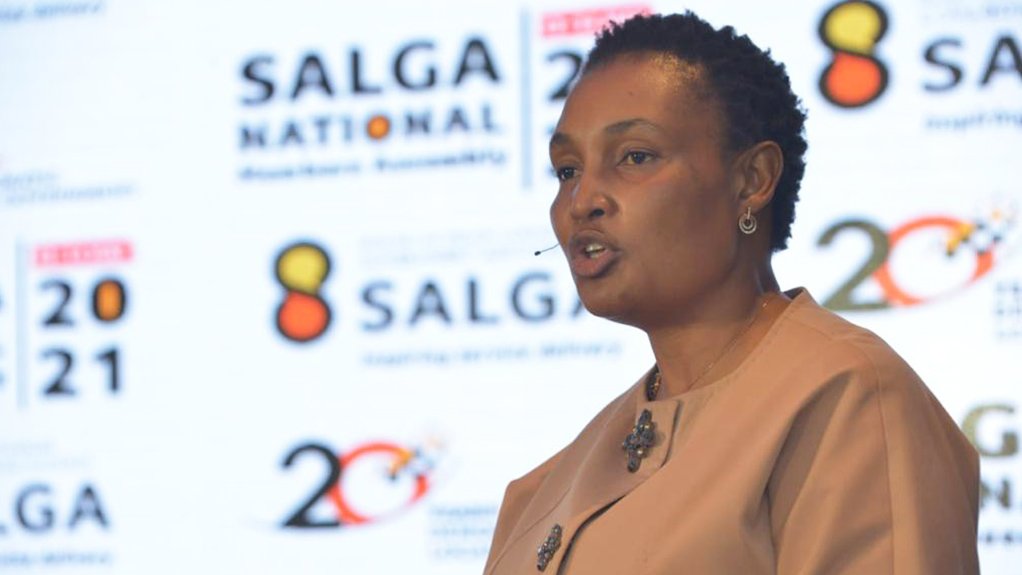Coalition governments in South Africa's major metros are failing because the goalpost keeps being moved from one area to another by different political players.
Taxpayers bear the brunt as service delivery is almost certain to be poor in municipalities governed by a coalition of parties.
This is according to Cooperative Governance and Traditional Affairs (Cogta) Minister Thembi Nkadimeng.
On Wednesday, she took part in a debate on law reforms at the municipal level with a focus on coalition governments. The event was hosted by the Hanns Seidel Foundation (HSF) and the Dullah Omar Institute at the University of the Western Cape.
Nkadimeng alluded to the fact that there is a direct link between poor service delivery and coalition governments.
"Looking at the spending of metros and municipalities that are in coalitions currently, even in the past term, you would see a strong correlation between the instability and lack of service delivery, not informed by a shortage or lack of resources."
"The goalpost keeps on being moved from one area to another by different parties. One would also need to look closely at the motions of no confidence. We need proper reasoning on why it should be there in the first instance. This should be protected so that service delivery can continue," she added.
According to Nkadimeng, legislation is needed to insulate the administration of municipalities from the political hierarchy.
"One would want to look at it very closely, in the issues of thresholds. We also need to look at how we lock our Integrated Development Plans (IDPs) once they have been adopted. We should also look into the powers and functions of a council that could be separated to allow the administration to function when there are difficulties in coalitions or at a political level," she said.
During deliberations at the recently held national dialogue on coalitions, hosted by Deputy President Paul Mashatile, much was spoken about the limitations on no-confidence motions and thresholds to determine who gets to be part of a coalition.
The African National Congress (ANC) and Democratic Alliance (DA) agreed that electoral thresholds should be factored into the creation of coalition governments, but smaller opposition parties argued this excludes them from democracy.
Wayne McComans, chief director for municipal governance and structures at the Department of Cooperative Governance and Traditional Affairs, said the success of coalition governments would be to treat all parties equally.
"Treat the small party the same way the big one is treated. We can't legislate respect and integrity," he said.
On the issue of thresholds, he said there are proposals of 1%.
"But as we discuss more, there will be more suggestions. There is a need for an agreement, and it must be made public. If you talk about citizenry accountability, this can be used to hold the coalition accountable," he said.
Professor Jaap de Visser, director of the Dullah Omar Institute, said limiting motions of no confidence to certain parts of a financial year should be looked at.
"Have a new candidate in place as an alternative. This means when the removal of the incumbent [happens], you already have a replacement. You are not breaking the democracy and forcing political parties to work together to find a suitable candidate. The secret ballot becomes a safe haven for all kinds of shenanigans," he said.
De Visser also said coalition partners should publicise their agreements and that more time is needed to negotiate the establishment of a government.
At the moment, political parties have 14 days after an election to establish a government.
Hanns Bühler, resident representative at the HSF, said it's important to recognise that coalition governments can contribute to stability if well organised.
"In Bavaria, one of the (Länder) provinces in Germany, for example, we find coalition governments on a local level which are usually much more focused on local issues than national. This also means they are less politicised and not so much affected by debates happening on national level," he said.
EMAIL THIS ARTICLE SAVE THIS ARTICLE
To subscribe email subscriptions@creamermedia.co.za or click here
To advertise email advertising@creamermedia.co.za or click here











